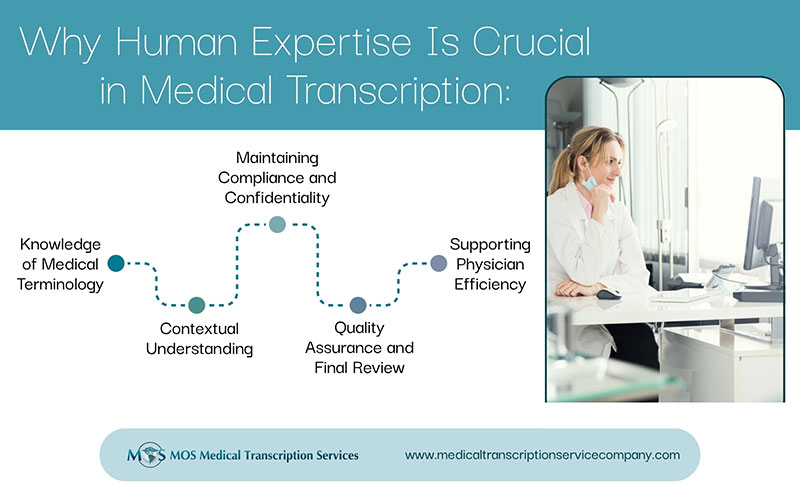 Communication is the prime requirement in any clinical setting, and lack of it can result in compromised care. Medical transcription companies know how important the communication factor is in ensuring accurate medical records and improved patient care. However, lack of communication between providers and patients is a major concern in many U.S. hospitals that receive people belonging to different ethnicities and who don’t speak English.
Communication is the prime requirement in any clinical setting, and lack of it can result in compromised care. Medical transcription companies know how important the communication factor is in ensuring accurate medical records and improved patient care. However, lack of communication between providers and patients is a major concern in many U.S. hospitals that receive people belonging to different ethnicities and who don’t speak English.
Fortunately, the advancements in technology seem to be providing apt solutions for this concern. One such example is Martti, or My Accessible Real-time Trusted Interpreter, a technological wonder that can connect providers at the mere touch of a button to interpreters who can communicate with patients with limited English proficiency. Martti can provide the right help to hospitals when and where they need it. It is estimated that in the United States, on an average one in five of current patients presenting to a hospital require interpretation.
Take the case of the Emergency Room in a hospital. Here, doctor visits are often hurried and patients require immediate care. This is one department in a medical treatment facility where patients come in without any appointments. In some cases, the patient may be in a critical state and physicians cannot delay the treatment process. Sometimes the patient may not be a native or may not understand English, which makes communication between the doctor and patient difficult. However, with a hospital interpreter service like Martti, language barriers can be avoided.
Dr. Patrick Flaherty of Royal Oak, an emergency room physician at McLaren Macomb recalled an Hispanic patient who came to the emergency department after a high speed motor vehicle accident. The man was severely injured and the doctor and team could not understand his language. So they called Martti, the robot that speaks 250 languages. With the help of Martti, the doctor and his team could understand what the patient was saying and provide the necessary care. Innovative technology such as Martti has made physicians’ job easier because they need not exclusively rely on family members to understand the patient’s problem. This also helps hospitals to remain HIPAA-complaint because physicians can discuss a patient’s health details with Martti in private.
 So what are the obvious advantages of a service such as Martti?
So what are the obvious advantages of a service such as Martti?
- A great relief for foreign-born residents and their care providers in the ER: Many cities and townships in U.S. states have immigrants from various countries worldwide such as Mexico, Albania, Iraq, India, Vietnam and so on. When these people visit hospital emergency rooms, interpreters and interpreter services become very useful.
- Useful during hospital visits: It is not only the emergency room that can benefit from a technology such as Martti, which gives patients and providers access to various languages. Interpreters are indispensable in hospitals as well. Mary Voutt-Goos, Director of Quality and Safety Initiatives at the Henry Ford Health System, says that in her 10 years of experience she has seen a growing demand for languages. She says that her team is responsible for language services that include telephone and in-person interpreters as well as document translation in languages like English, Arabic, Bengali and Spanish for documents including a healthcare visit tool, advance directives, consent forms and patient instruction sheets. Hospitals that don’t have access to technology such as Martti rely on telephones and interpreters to communicate with non-English speaking patients.
- Versatile technology: Apart from facilitating communication with patients, interpreter services can be used for seminars and classes a hospital offers.
Just as clarity of communication is important during medical transcription outsourcing, it is vital in provider-patient interaction as well. The physician must understand what the patient is trying to say, and the patient must understand what the physician says and the treatment he/she is trying to give. It is only through such communication that you can ensure respect and dignity that form the basis of care. Advanced technological developments such as Martti ensure security, privacy, compliance and cost savings. They can bring about a solid difference in the way care is provided by connecting skilled and experienced interpreters with smart technology, and avoiding any kind of delay in communication.


